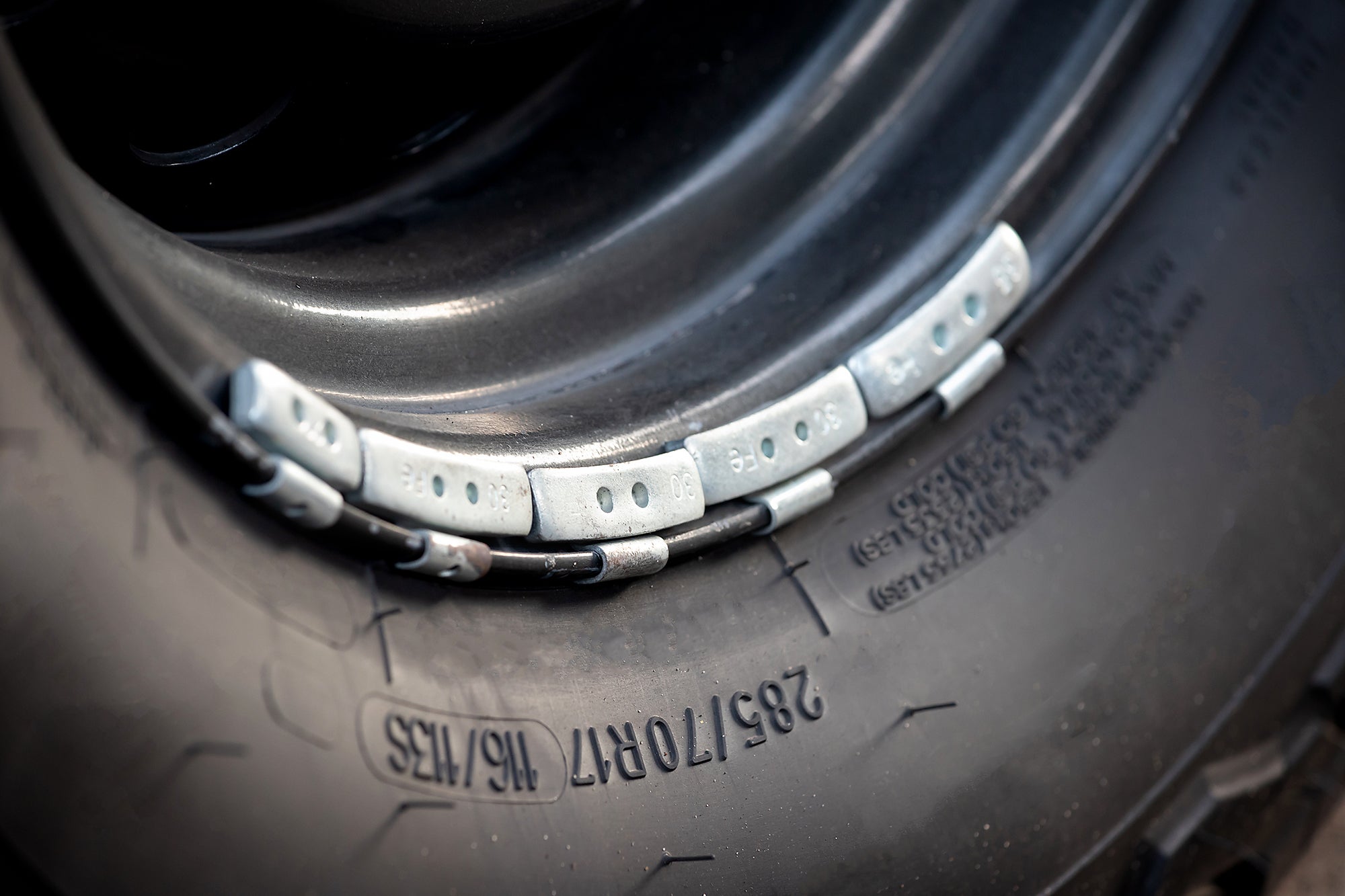Lead Wheel Weights Are the Deadly Car Accessory We Don’t Need or Want
Earthjustice sued the EPA for failing to ban lead wheel weights, small metal bars that help balance tires but shed toxic lead into our air, water, and soil.

This page was published a year ago. Find the latest on Earthjustice’s work.
Imagine every drive in the U.S. having the potential to silently contribute to an environmental crisis. Each day, tiny particles of lead shed from small metal bars attached to vehicle tires and scatter across streets and playground, ultimately seeping into the air, water, and soil. This hidden hazard threatens our health by contaminating our everyday surroundings with harmful lead — a heavy metal for which there is no safe exposure level.
Despite the clear dangers — and the fact that there are safer alternatives — lead wheel weights remain unregulated at the federal level. Earthjustice clients sued the U.S. Environmental Protection Agency (EPA) after the agency failed to deliver on its promise to regulate lead wheel weights and ultimately delay critical public health protections. This case is part of our broader effort to get lead and other harmful chemicals out of our environment.
Because of their toxic nature, lead wheel weights pose a significant risk to people and the environment. According to several studies, lead exposure has been linked to neurodevelopmental damage, nerve damage, cancer, cardiovascular disease, kidney damage, and fertility problems, and it is particularly harmful to children.
Fallen weights can be picked up by children, reused by hobbyists who melt them down into other lead products, or disintegrate into fine dust that contaminates the air and water. This lead contamination is particularly harmful to people who live or walk near busy roads, with children being especially vulnerable to the effects of lead exposure.
Despite these dangers, the EPA has not yet regulated lead wheel weights. In 2009, Earthjustice clients petitioned the EPA to ban them, but the agency has yet to act. Some industry players have switched to lead-free weights and nine states have implemented protective regulations. However, these efforts are fragmented and insufficient to address the nationwide issue. Banning the manufacture, processing, and distribution of lead wheel weights nationwide would protect public health by eliminating “a major source of lead exposure.”

A youth scientist who spoke to the U.S. EPA to ask the agency to ban lead wheel weights holds up a fragmented part of a lead wheel weight found a block from the U.S. EPA building along Constitution Avenue in Washington, D.C. (Matt Roth for Earthjustice)
Recently, Earthjustice settled a lawsuit with the EPA that requires the agency to take final action on lead wheel weights. One way it can do so is by finally regulating lead wheel weights. If it takes this route, it must issue a proposed regulation for lead wheel weights by the end of 2024, and it must finalize the rule by September 2025.
For too long, the EPA has dragged its heels on this issue. Federal regulation is essential for providing consistent and effective protection nationwide, supporting public health, and ensuring environmental safety.
Earthjustice’s Toxic Exposure & Health Program uses the power of the law to ensure that all people have safe workplaces, neighborhoods, and schools; have access to safe drinking water and food; live in homes that are free of hazardous chemicals; and have access to safe products.